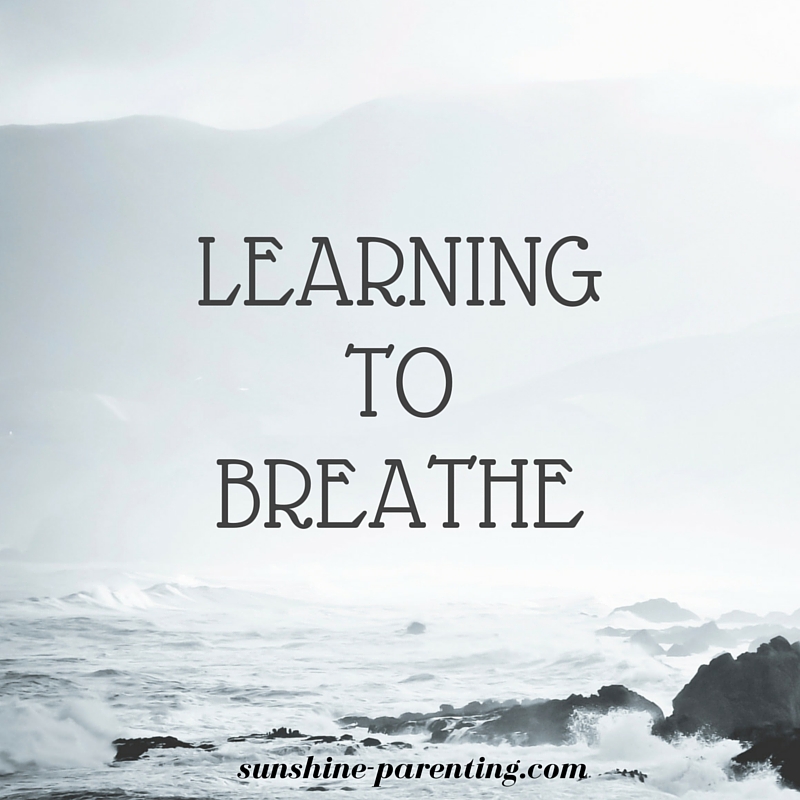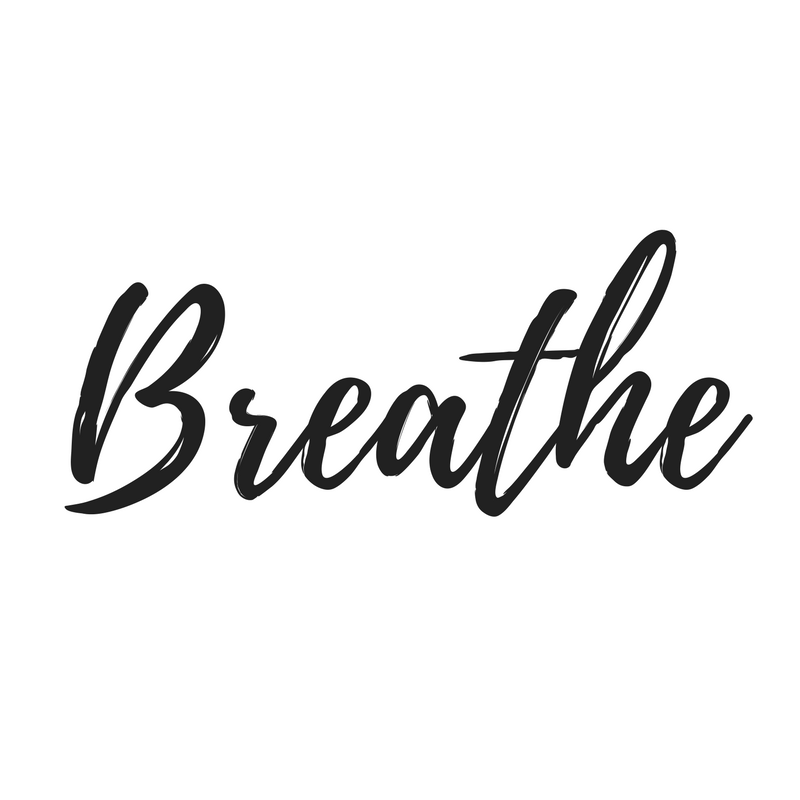Learning to Breathe
 I learned to breathe a few weeks ago.
I learned to breathe a few weeks ago.
Let me explain. While I’ve been breathing my whole life, I found out a few weeks ago, during a counseling session with a neuro-therapist, that I haven’t been doing it correctly.
I spent a lot of my time doing shallow breathing, often while simultaneously feeling agitated. I think one of the reasons I’ve always enjoyed running so much is that I breathe so much better.
My new breathing practice is making my moments, and my interactions with others, much better.
 This school year has been a challenging one for me as a mom. A combination of factors—two adolescent boys in the house, a life full of family, work, sports, and travel commitments, and the fact that I’m not as young as I was during my first go-around with teenagers—combined to push me to the edge of my ability to stay calm and respond to my kids the way I know how to and want to.
This school year has been a challenging one for me as a mom. A combination of factors—two adolescent boys in the house, a life full of family, work, sports, and travel commitments, and the fact that I’m not as young as I was during my first go-around with teenagers—combined to push me to the edge of my ability to stay calm and respond to my kids the way I know how to and want to.
I “lost it” with my kids a few times, either saying something I regretted as soon as it came out of my mouth or, in the infamous “restaurant incident,” leaving because I couldn’t handle being in the same room with my family.
That occurred when one of my kids refused to share ONE MOZZARELLA STICK with the other. In addition to the general attitude of ungratefulness I was already frustrated about, the greedy cheese stick hoarding put me over the edge of sanity. Instead of screaming about what an ungrateful brat he was being (because I didn’t want the entire restaurant to know my head was about to explode in anger), I stood up, pushed my chair in, and left the table without saying a word. Of course, my husband and kids knew from my non-verbal behavior exactly what was going on in my head. I sat in the car in the parking lot, reflected on my many recent parenting failures, shed some tears of frustration, and day-dreamed about spending a week (month?) somewhere by myself.
And then I decided to get some help. I asked a friend for a referral to a counselor who specializes in parenting, teenage, and adoption-related issues, and I made my first appointment. And that’s how I’ve now learned to breathe.
I’m becoming an expert at slow, deep breaths. I practice inhaling so deeply that I can feel my diaphragm go in and exhaling so much that I can feel it go out. Sometimes I count, but other times I just breathe.
And it’s working.
Apparently, those breaths allow some oxygen to get where it needs to go – the part of my brain (frontal lobe) that helps me think clearly and plan an appropriate parental response. The breathing also hits the “pause” switch on the reactive part of my brain (that darn amygdala that makes me say things I later regret).
But whatever is going on physiologically, I already see that breathing is helping me during those moments with my kids that can bring some unflattering words into my mind. I’ve created a five-step process to learn to respond better to negative situations like complaining, arguing, forgetting manners, etc.
- NOTICE that I’m in one of “those” moments – feeling my body tensing up.
- BREATHE! Take a few really deep, slow breaths.
- MOVE to the “wise” part of my brain and THINK about what might be making this beloved child of mine say or do this particularly unattractive thing. Ask myself some questions about the current state of affairs. Could said child be hungry, tired, feeling threatened by a sibling, upset about something at school? Just stuck in the wrong part of his own brain?
- Stay CALM and QUIET and don’t respond right away.
- BREATHE some more.
Next steps, when my brain functioning becomes even more advanced from all of this great breathing, will include engaging my child in a calm conversation about what I’m noticing and asking him some questions that could help get him in touch with his own thinking part of his brain. Apparently, this is no a simple task for a teenage boy.
I’m not there yet. I’m still just working on my breathing for a few weeks. But then I’ll be ready to engage my natural curiosity and try to get more clarity about behaviors and triggers.
The breathing alone is already helping. I don’t always remember to breathe, but I’m improving every day, and I’m noticing a calmer, better vibe at home.
Today on the car ride to school, rather than trying to engage tired, monosyllabic teenage morning boys in conversation, I just breathed a lot. It was a peaceful drive.
If you’re feeling tense as you’re responding (or anticipating responding) to a challenging situation or behavior, I highly recommend you pause and take a few really deep, good breaths. It’s working for me.
One thing I know for sure is that our kids learn more about how to relate to others from what they see us do ourselves than anything we tell them to do. If our kids see us breathing and calming down before reacting, they might learn to do more of that themselves. And that’s a really good thing.
Resources/Related
on Sunshine Parenting…
Ep. 110: Keep Calm & Parent On
10 Ways to Teach Kids to Calm Down
How to Respond to Bad Behavior
Ep. 121: The Power of Showing Up with Dr. Tina Payne Bryson
Ep. 95: Raising a “Yes Brain” Child with Tina Payne Bryson
And other places…
Want Clear Thinking? Relax, Scientific American
3 Surprising Ways a Deep Breath Can Reduce Your Anxiety, pickthebrain.com
Stress Management Breathing Exercises, Web MD
6 Breathing Exercises
Stress Relief You Can Take Anywhere
A Breathing Exercise to Calm Panic Attacks, anxietycoach.com
“4-Square” Breathing
Quick Exercise to Clear Your Mind, Video from Sharon Melnick
My Theme Song for this year: Just Breathe, by Jonny Diaz
